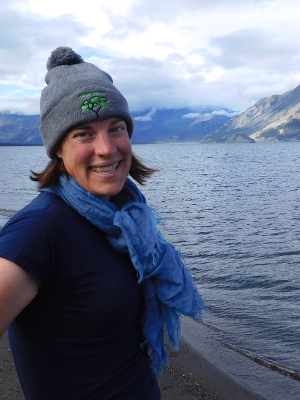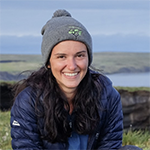Coding Club – peer learning in programming, statistics and data science
Posted on 17 October 2018
Coding Club – peer learning in programming, statistics and data science
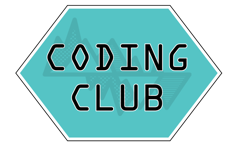 By Gergana Daskalova and Isla Myers-Smith, University of Edinburgh.
By Gergana Daskalova and Isla Myers-Smith, University of Edinburgh.
What is Coding Club?
Coding Club combines online and in-person resources to help teach quantitative skills to people at all career stages working inside and outside academia. Coding Club is focused on trying to overcome "code fear" and "statistics anxiety". Statistics anxiety – the worry about a lack of quantitative skills – and code fear – the fear of programming – can prevent people from engaging with the development of quantitative skills. Our aim is to promote a fun and supportive environment where people can acquire the skills they need to answer their research questions or to progress with their careers either inside or outside academia. We want to step away from labels such as “hard” or “only for those good at math” and encourage people to learn up to their desired level without the pressure of assessments or a strict curriculum.
 Learning about version control and git at a Coding Club workshop. Photo credit: Gergana Daskalova
Learning about version control and git at a Coding Club workshop. Photo credit: Gergana DaskalovaWhat is our teaching philosophy?
We focus on peer teaching and interaction rather than having "trained experts" leading workshops as we feel people engage more when they are less intimidated. All of our teaching materials are developed by people who are actively learning data science skills at the same time as teaching them. We also recognise that people learn at different paces. By stepping away from live coding and having some people rush whilst others wait, we are letting people take as long or as little time as they wish to complete the tutorials. The casual non-compulsory and non-assessed nature of the tutorials also helps take away some of the fear and anxiety associated with quantitative skills. Finally, we don't think there is only one way to teach quantitative skills, and promoting a diversity of approaches will reach the greatest number of people.
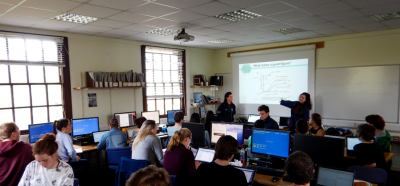 Peer teaching at Coding Club – 4th year undergraduate students Sam and Claudia leading a workshop on data visualisation. Photo credit: Gergana Daskalova
Peer teaching at Coding Club – 4th year undergraduate students Sam and Claudia leading a workshop on data visualisation. Photo credit: Gergana DaskalovaWho is Coding Club for?
We encourage participation across different career stages from undergrad students through to PhD students, postdocs and staff. Over the last two years, we have seen people grow from attending our workshops to leading them and contributing to the website content development. In other instances, people have taken up career opportunities in data science – a field by which they might have otherwise been intimidated. We believe that people should have the opportunities to take their quantitative skills to whatever level they wish – be it an introductory or a more advanced one. Though most of us work in ecological and environmental sciences, we have found that quantitative skills can bring together people from a wide range of disciplines – marketing, economics, psychology, mathematics and more.
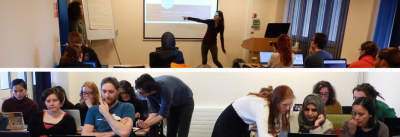 Coding Club workshop at the University of Aberdeen. Teaming up with people keen to share quantitative skills in Scotland and beyond has given us the opportunity to organise workshops at several Scottish Universities, at the British Ecological Society Annual Meeting, and at Ghent University in Belgium. Photo credits: Isla Myers-Smith
Coding Club workshop at the University of Aberdeen. Teaming up with people keen to share quantitative skills in Scotland and beyond has given us the opportunity to organise workshops at several Scottish Universities, at the British Ecological Society Annual Meeting, and at Ghent University in Belgium. Photo credits: Isla Myers-Smith
The Coding Club workshops started at the School of GeoSciences at the University of Edinburgh, but through our online tutorials we are reaching an international audience much beyond Edinburgh. All of our resources are freely available, and we encourage feedback and suggestions for revisions. Because we host our content on GitHub, people can take our materials, adapt them to their needs and use them for their own teaching. Equally, people can create new tutorials and we are happy to feature them on the Coding Club website. Coding Club is for everyone keen to learn about programming, statistics and data science, and for anyone interested in sharing their own quantitative skills.
The international audience of Coding Club and some of our Coding Club tutorials – check out our website for content on data visualisation, modelling, working with big data and more!
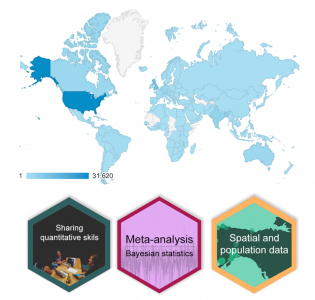
The international audience of Coding Club and some of our Coding Club tutorials – check out our website for content on data visualisation, modelling, working with big data and more!
The future of Coding Club
Over the next two years, we are planning to team up with the Software Sustainability Institute to take Coding Club one step further. We are developing challenges and case studies where people can use the skills they’ve acquired through the Coding Club tutorials in an applied problem-solving context. We are expanding our online content to include modelling in Python and R, and remote sensing analyses using the Google Earth Engine. More broadly, we see Coding Club as a model for how we can collectively advance our quantitative skills, and anyone keen is welcome to join in. Just get in touch!

